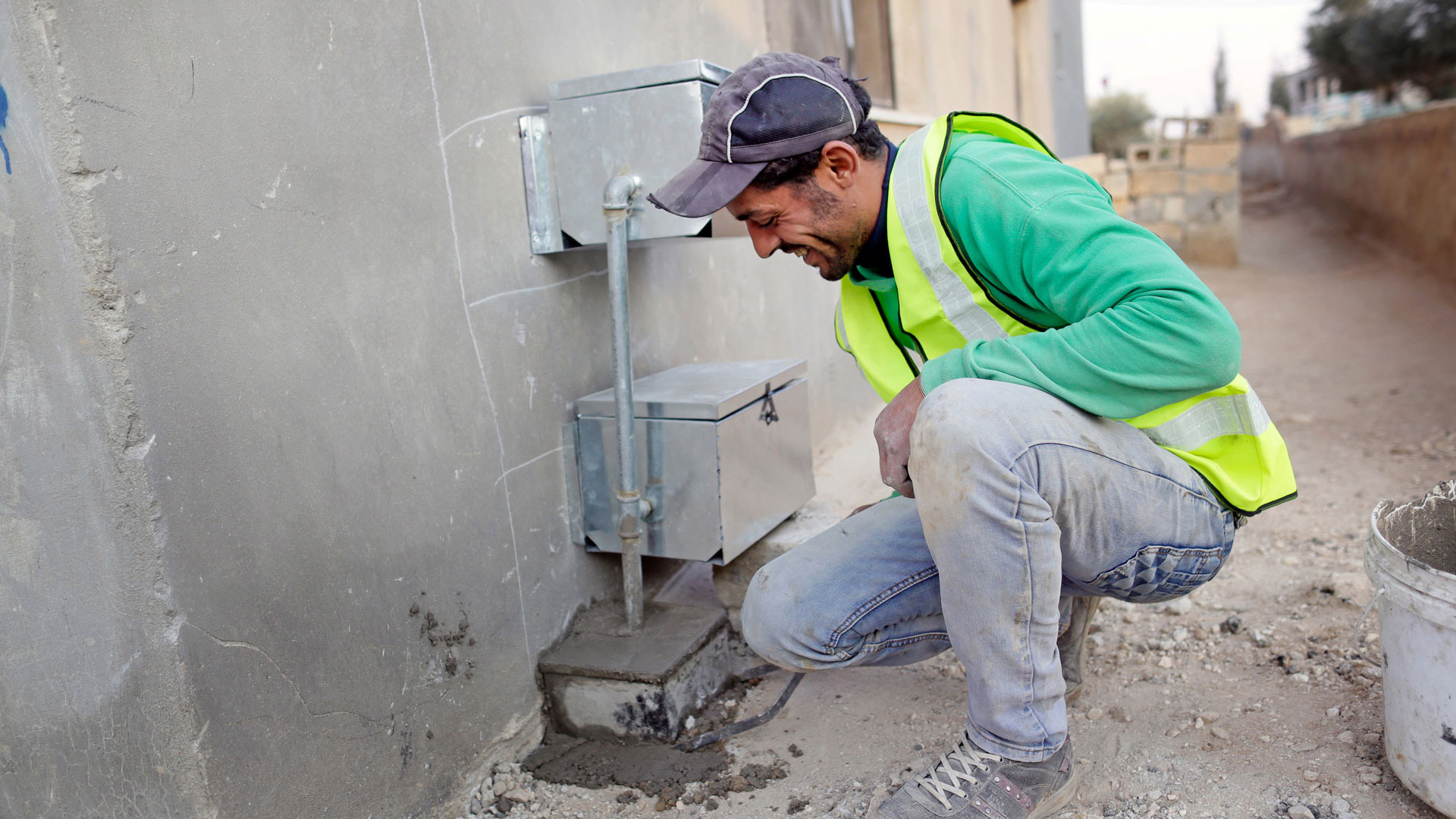German activities Stabilising host regions
New drinking water pipes are laid at a house in the city of Mafraq in Jordan.
The countries hosting the most people are Iran, Turkey, Colombia and Germany. Uganda follows in fifth place (as at December 2024).
In the host countries, it is often difficult for refugees to find employment. There are only few countries that give them work permits and, thus, a chance to make a living through regular employment. In addition, they often do not have adequate access to education programmes or health services. When people feel that they have no future and that they are socially excluded, they can develop serious emotional disorders. Many refugees have been traumatised and need targeted assistance in order to become able to take their lives into their own hands again.
And the arrival of very large numbers of people within a short space of time is often a huge challenge for host countries: there is a lack of housing and employment opportunities and of teachers and schools, and food and water are not available or start to run low. Health posts and hospitals, too, are often hopelessly overstretched. In particular, access to water and fertile land can lead to conflicts between displaced people and local communities.
The BMZ therefore pursues the goals of
- giving refugees and internally displaced persons better opportunities in the host countries, and
- assisting host regions and communities in their effort to meet the enormous challenges.
Through development projects that improve job creation, education or health care and that benefit both displaced people and locals in the host communities, it is possible to foster the integration of displaced people in their new environment and reduce social tensions.
In order to help stabilise the situation in host communities, Germany is also investing in infrastructure on the ground, for example water supply systems, and in income-generating measures. Host countries' government institutions and non-governmental organisations also receive support, so that they can maintain or even enhance their services for refugees and host communities.
Displaced people usually have not only lost everything they ever owned – many have also been subjected to violence, humiliation and exploitation. Germany is a vocal advocate for the rights of displaced people, also funding measures designed to alleviate the suffering caused by the traumatic events the refugees have experienced.
Germany also tries to facilitate dialogue between new arrivals and local communities. The aim of all these interventions is to help displaced people become integrated, avert conflicts and ensure that everyone has access to the basic necessities.
As at: 17/07/2025
